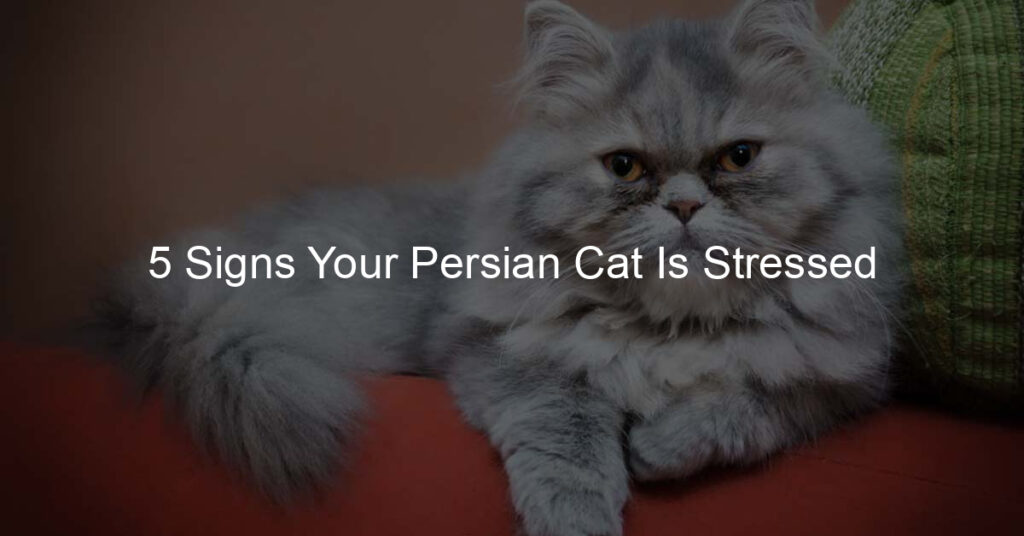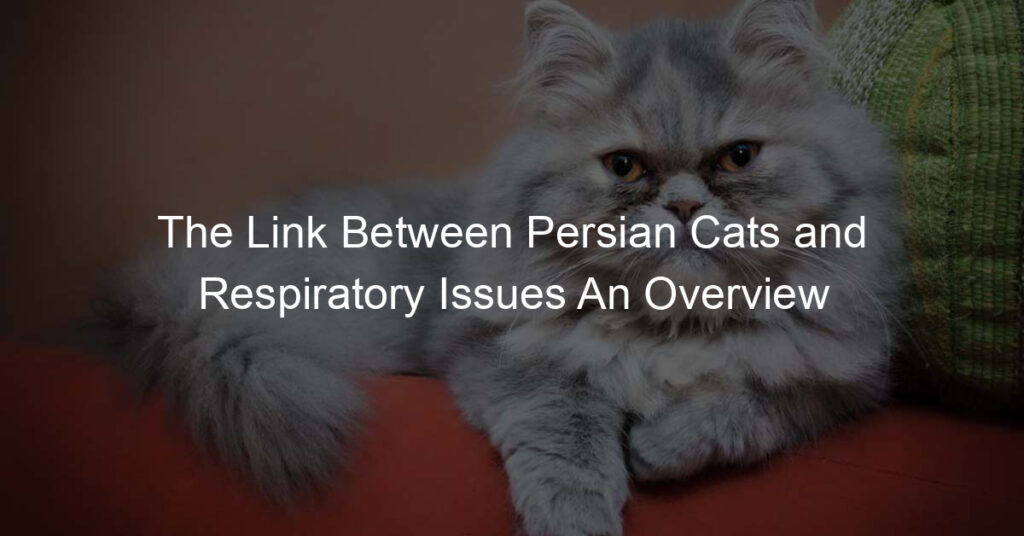Persian cats are gorgeous, with their long coats and beautiful faces. But did you know that they can also be quite high-maintenance? If your Persian cat is acting out of the ordinary, it might be a sign that they’re stressed. Here are 5 signs to look out for. . . . continue reading!
1. Excessive Grooming: If your Persian cat is spending an unusual amount of time grooming itself, it could be a sign that they are stressed. This behavior can range from licking their fur excessively to chewing on their paws or tail.
2. Hiding: If your Persian cat is usually social and outgoing but all of a sudden becomes reclusive and spends most of its time hiding away, it could be a sign that they are feeling anxious or stressed.
3. Loss of Appetite: If your Persian cat is not eating their food as often as usual, it could be a sign that something is bothering them. They may also stop drinking water or become picky with their food.
4. Aggression: Persian cats are usually sweet and docile, but if they become overly aggressive toward people or other animals, it could be a sign of stress.
5. Excessive Meowing: If your Persian cat is meowing more than usual, it could mean that they feel neglected or that they are trying to communicate something.
What happens if a cat gets too stressed?
If a cat is under too much stress, it can lead to a variety of behavioral and physical health issues. More long-term stress can even put your cat at risk for depression and anxiety if not addressed quickly. Some signs that your cat may be feeling seriously stressed include excessive vocalization, hissing and growling, aggression, self-mutilation or grooming excessively and refusing to eat or drink.
If you notice any of these behaviors in your cat, try to create a more comfortable home environment by introducing new places where they can hide or play with multiple toys available throughout the day. Also, be sure to provide plenty of love and affection from you to help with their emotional well-being.
How does a stressed cat behave?
When a cat is feeling stressed out it can manifest its distress in many ways. It might act skittish, hide away from people or pets, stop grooming itself, over-groom itself, become more vocal than usual and meow constantly, show erratic behavior towards objects or unfamiliar people and animals, start peeing outside of the litter box, shed an unusual amount of fur from excessive grooming or licking its skin to the point of raw patches.
While some stress is normal in cats, if symptoms continue for a long period it’s important to assess what triggered the change in your pet’s behavior and take steps to try to help it return to its usual self.
How do you comfort a stressed cat?
Comforting a stressed cat is all about understanding and responding to its body language and behavior. Start by creating a calm, quiet environment and introducing your pet to it slowly. If they’re feeling scared or overwhelmed, take your time to interact with them—try sitting on the floor in one spot until they come over to you instead of chasing after them.
Provide plenty of extra affection, like petting or coaxing them onto your lap, as well as stimulating activities like scratching posts or calm playtime so that they can work off excess energy or boredom. You should also make sure they have access to comfortable hiding places if they need some alone time, and try providing comfort items like cozy beds in those spots!
How do you calm a stressed cat naturally?
Cats can often become stressed for various reasons and it’s important to act quickly to help calm them down. A great way to lessen stress with cats is to provide a safe, comfortable environment. Make sure the cat has access to its litter box, food, and water bowl. Additionally, some cats may benefit from an extra scratching post or hiding place where they feel safe and secure.
Spending time cuddling and playing together can also be soothing as it helps establish trust between you and your feline friend. Create an atmosphere of support by talking in a soft voice and offering plenty of affectionate strokes. When possible, add some natural elements like Feliway or Bach Rescue Remedy to the environment that have calming properties specifically designed for cats that may be feeling anxious. All these steps will help ensure your kitty remains relaxed and stress-free!
Summary: 5 Signs Your Persian Cat Is Stressed
Stressed cats can be a result of many factors, but it’s important to pay special attention to the five signs that your Persian cat may be experiencing some level of stress. Fortunately, there are many things you can do to reduce stress and its attendant effects on your precious pet.
As a loving companion, take time to observe and listen to your cat’s behavior as well as consult with your vet for further guidance. When possible, provide lots of stimulating activities in its daily routine such as puzzles and toys so it can have moments away from stressful situations if needed. By doing these steps, you’ll help ensure the health and well-being of your beloved Persian cat!














